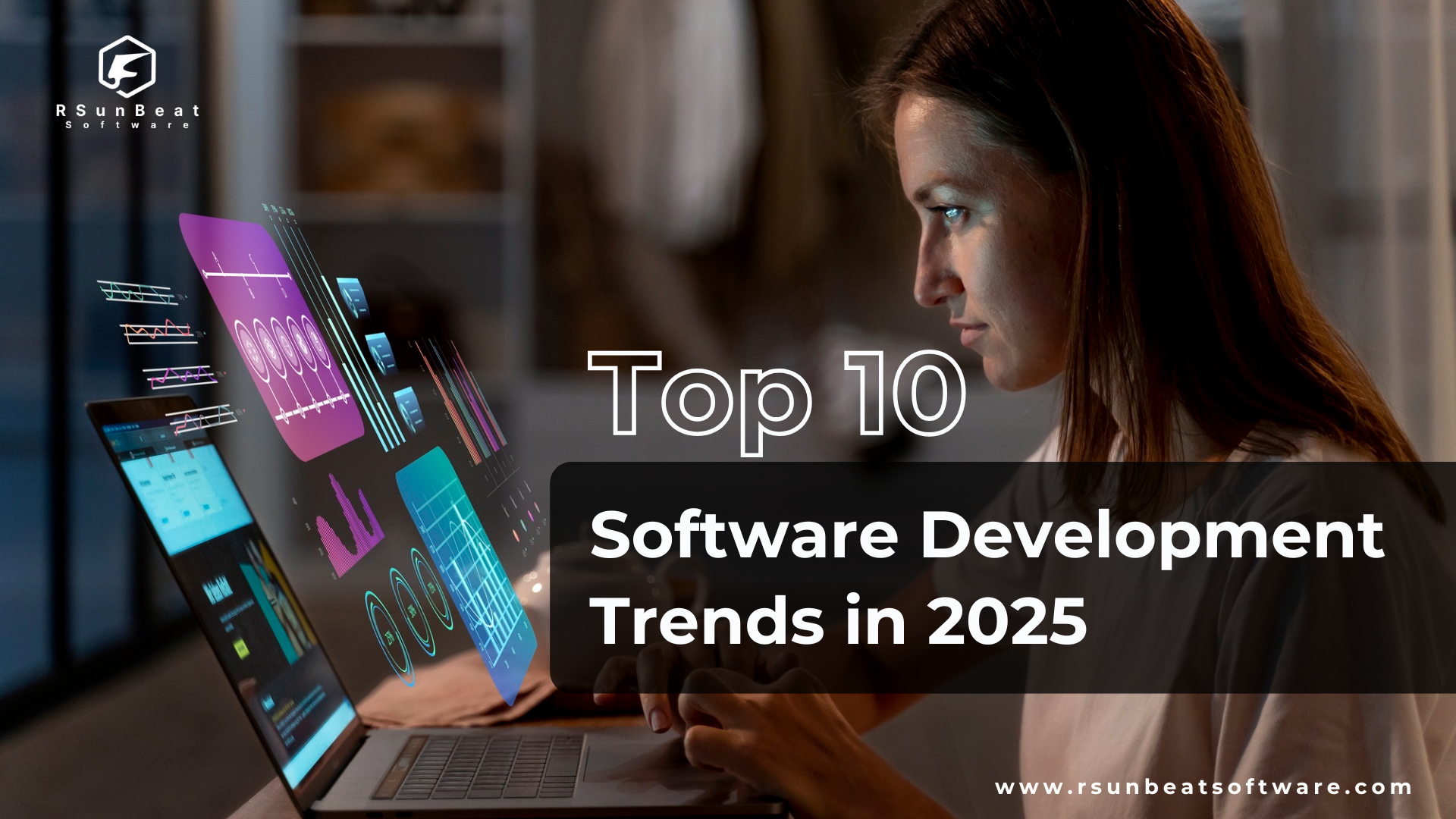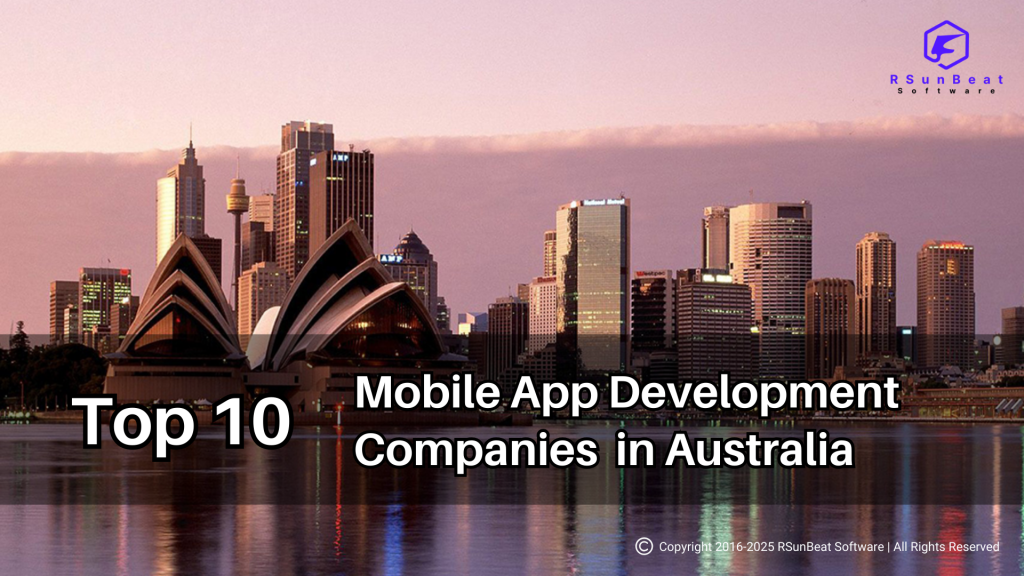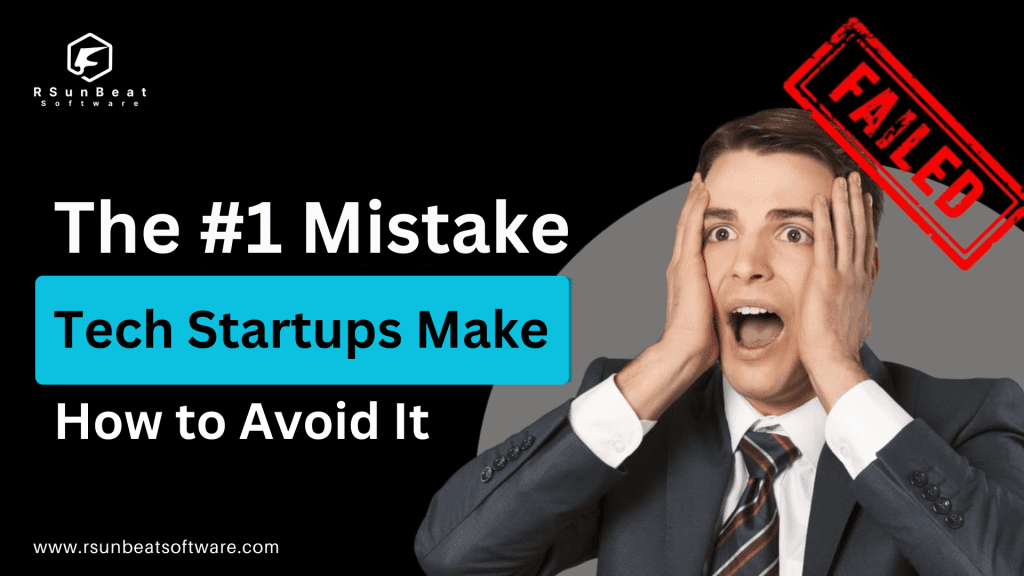
Top 10 Software Development Trends in 2025
The software development landscape is evolving at a rapid pace, and as we move deeper into 2025, the digital world is witnessing a massive transformation driven by innovation, efficiency, and adaptability. whether you’re a startup founder, enterprise stakeholder, or business enthusiast seeking to remain ahead of the curve, understanding the top software development trends in 2025 is no longer optional—it’s essential. staying up-to-date with these trends will not only help you remain competitive but also empower your business to leverage cutting-edge technology to drive performance and scalability.
In this blog, we’ll take a deep dive into the top 10 software development trends that are making waves in 2025. each section is backed by research, market behavior, and real-world business applications. and if you’re looking for a technology partner to navigate and adopt these innovations, connect with rsunbeat software today for smart, scalable, and future-ready solutions.
1. Artificial intelligence and Machine learning integration
2025 is all about hyper-personalization, real-time data processing, and intelligent automation. businesses are increasingly integrating ai and ml into their software solutions to deliver predictive insights, automate workflows, and enhance customer experiences. with ai-driven algorithms improving every aspect of business—be it finance, healthcare, logistics, or e-commerce—software development has now embraced ai as a default component.
Popular applications include ai-powered chatbots, automated customer support, dynamic pricing engines, and intelligent recommendation systems.
2. Low-code and No-code Development Platforms
As businesses demand faster go-to-market solutions, low-code and no-code platforms have emerged as powerful tools to democratize software development. they allow users with minimal coding knowledge to build fully functional apps using drag-and-drop interfaces. these platforms significantly reduce development time, cost, and dependency on large engineering teams.
In 2025, this trend is transforming industries by enabling citizen developers to solve specific business problems without technical bottlenecks.
3. Cloud-Native Development and Serverless Architecture
Cloud-native technologies, including containers, microservices, and serverless architecture, are becoming the backbone of modern applications. businesses are shifting from traditional monolithic systems to scalable, cost-effective, and resilient cloud-native apps. these apps offer better performance, quick scalability, and enhanced fault tolerance.
Serverless computing, in particular, enables developers to focus on core functionalities without managing server infrastructure. it reduces operational costs while improving deployment speed.
4. Cybersecurity-First Development Approach
In an age where cyber threats are more sophisticated than ever, cybersecurity is no longer an afterthought—it is a foundational pillar of software development. organizations are now integrating security protocols throughout the development life cycle, adopting a “shift-left” approach where security testing happens from the earliest stages.
New trends include automated threat detection, zero-trust architecture, and real-time vulnerability monitoring.
5. Edge Computing for Real-Time Applications
Edge computing is redefining real-time data processing by bringing computation closer to data sources like IOT devices. this reduces latency, enhances speed, and minimizes bandwidth usage. in 2025, industries such as healthcare, automotive, and manufacturing are embracing edge computing to support mission-critical operations.
6. Cross-Platform App Development
Cross-platform frameworks are empowering developers to build apps that work seamlessly across ios, android, and web platforms—saving time and resources. frameworks like flutter, react native, and xamarin are gaining massive traction due to their unified codebases, native performance, and vast plugin libraries.
In 2025, businesses are prioritizing cross-platform development to maximize reach and maintain consistent user experiences.
7. Progressive Web Apps (pwas)
Progressive web apps combine the best of web and mobile applications, offering an app-like experience with offline capabilities, push notifications, and fast load times—all within a browser. they require no installation, making them ideal for user acquisition in regions with low data connectivity.
As users demand frictionless experiences, pwas are being increasingly adopted across e-commerce, news, travel, and entertainment sectors.
8. Blockchain-Based Applications
Blockchain is expanding beyond cryptocurrency and into mainstream software development. use cases now include supply chain transparency, secure digital identities, smart contracts, and decentralized finance (defi) platforms. businesses are exploring blockchain for its security, transparency, and decentralized structure.
In 2025, industries like healthcare, real estate, and legal tech are leveraging blockchain to build tamper-proof, verifiable systems.
9. Artificial Reality (AR) and Virtual Reality (VR) experiences
The line between physical and digital is blurring with immersive technologies like AR and VR. in 2025, these tools are reshaping industries by enabling remote training, virtual showrooms, gamification, and real-time collaboration.
AR and VR development is booming in retail, education, architecture, and entertainment.
10. Sustainable and Green Software Development
As global attention shifts toward environmental responsibility, green software development is emerging as a key trend. businesses are optimizing code for energy efficiency, using sustainable cloud solutions, and adopting eco-friendly practices across the development cycle.
Comparison Chart: Traditional vs. Trending Approaches in 2025
🟦 Evolution of Software Development Methods
| Feature/Focus | Traditional Development | 2025 Software Trends |
|---|---|---|
| Architecture | Monolithic | Microservices & Serverless |
| Development Speed | Slow | Low-Code / Agile |
| User Experience | Standard | Immersive (AR/VR, AI-driven) |
| Deployment | On-premise | Cloud-native & Edge |
| Security | Post-development | DevSecOps, Zero Trust |
| Sustainability | Ignored | Prioritized |
Why choose RSunBeat Software?
At RSunBeat Software we stay ahead of the technology curve so you don’t have to. our team specializes in delivering custom software development solutions aligned with the latest 2025 trends. from ai and edge computing to blockchain and pwa, we harness innovation to help you accelerate digital transformation while staying within budget.
Partner with us to:
adopt future-ready tech stacks
reduce development time with automation & low-code platforms
ensure airtight cybersecurity with built-in threat detection
scale seamlessly through cloud-native and serverless architecture
build apps that are sustainable, immersive, and high-performing
Conclusion
As 2025 continues to unfold, businesses that embrace these top software development trends will stand out in a saturated digital market. from delivering personalized user experiences with ai to streamlining operations with edge computing, the future is packed with opportunity—and the time to act is now.
If you’re ready to transform your vision into cutting-edge software solutions—cost-effectively and confidently—
Contact US today to transform your digital strategy and stay ahead in 2025 and beyond.
Testimonials ~
What Our Clients
Are Saying
Your trust drives our passion. Here’s how we’ve helped businesses like yours thrive with tailored solutions and unmatched support.

Hussein Termos
CEO
“RSunBeat Software is a top-tier web development company for the real estate industry. They delivered a user-friendly, customized platform that met our needs perfectly. Their innovative solutions, on-time delivery, and excellent support made the process seamless. Highly recommended for exceptional development services!”

James Carten
Founder & CEO
“Before working with RSunBeat Software, our real estate business faced issues with unreliable mobile apps, poor user experiences, and missed deadlines. RSunBeat delivered a seamless, high-performing app with excellent functionality, intuitive design, and timely execution, transforming our operations. Their expertise and dedication make them a trusted partner.”

Darla Shewmaker
VP of Marketing
“RSunBeat Software developed a great, user-friendly mobile app that exceeded our expectations. The team was extremely professional, kept us updated throughout the process and completed the work on time. Their expertise and dedication made the whole project seamless. We highly recommend RSunBeat for their great work and reliability!”

Nicholas Toh
Project Manager
“RSunBeat Software delivered an amazing web and app development experience. Their team was highly professional, detail-oriented, and dedicated to bringing our vision to life. The final product was seamless, user-friendly, and exceeded our expectations. We highly recommend them for top-notch development services!”
Our Technology Experts
Are Change Catalysts
Mail to Our Sales Department
info@rsunbeatsoftware.com
Our Skype Id
Rsunbeat Software


